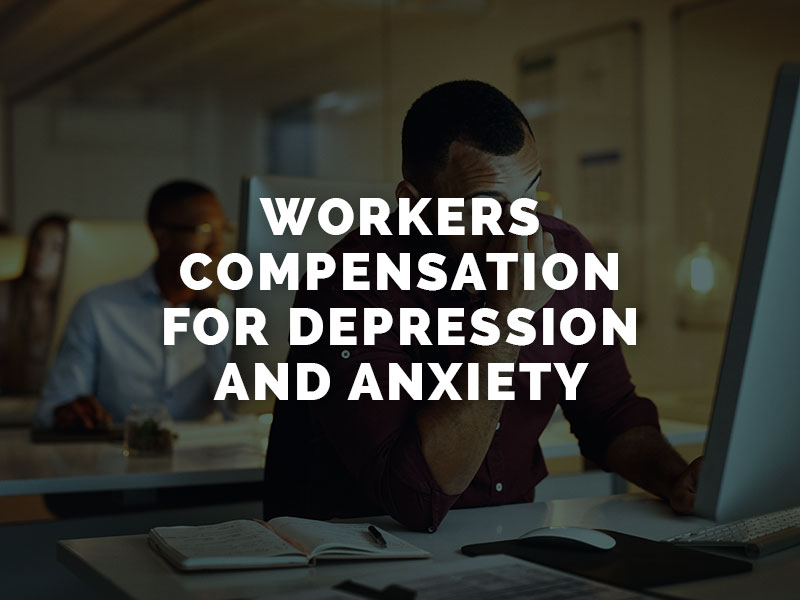When you think about workers’ compensation, you probably imagine injuries such as bone fractures or concussions. You may not recognize nonphysical injuries as compensable damages until something happens at work that leaves you with serious depression or anxiety. Damage to your mental health can be as crippling as a physical injury. If something work-related causes you a permanent mental impairment, you may be eligible for workers’ compensation in Colorado with or without a physical injury.

Like all states, the Colorado workers’ compensation system has specific rules and regulations determining if and when an injured worker qualifies for benefits. The Colorado Workers’ Compensation Act, section 8-41-301(2)(a), specifically addresses mental impairments. According to this law, mental impairment is a permanent disability that does not involve a physical injury but rather harms the worker through psychological trauma.
To qualify for coverage, you must have developed the mental impairment during the course of your employment. The event that caused the depression or anxiety must have been atypical, or unusual, for you and the nature of your job. A normal condition of the workplace may not give you grounds to file for workers’ compensation, even with a related mental impairment. The law also stipulates the event must be distressing enough to have reasonably caused the same impairment in another worker under similar circumstances.
As an employee in Colorado, you cannot seek coverage for depression or anxiety arising out of job termination, demotion, disciplinary action, a performance evaluation, job transfer or a similar good faith employment action. A bad faith action, such as wrongful termination, however, may make you eligible for compensation. If your depression or anxiety stems from a physical injury you suffered on the job, you may also qualify for workers’ compensation benefits for your nonphysical injury.
If you suffered a physical injury at work, along with depression or anxiety, file your claim for both types of damages. Explain your physical injury and how it impacted your life and ability to work. Include your nonphysical injury if a health care provider has clinically diagnosed you with depression or anxiety.
You may receive additional benefits for treatments related to your mental impairments, but you will need proof of your depression or anxiety in the form of a medical evaluation or testimony from a licensed doctor or psychiatrist.
If you witnessed or experienced an event that inflicted mental harm without a physical injury, you may file a claim solely for the nonphysical damages. The process for your claim will be similar to that for a physical injury. First, report your experience to your employer. Once you notice symptoms of depression or anxiety, see a doctor for a clinical diagnosis. If your doctor or psychiatrist recommends some form of treatment, such as therapy, follow the treatment plan exactly. Then, file a workers’ compensation claim.
Make your claim as clear as possible. Describe the incident that caused your mental trauma, explaining how it was not a normal event at your job. Write down how your depression or anxiety has impacted your life, including forcing you to miss time at work or pay for psychotherapy. Include medical testimony or statements to support your official diagnosis. Your employer’s insurance company may request more information or evidence supporting your mental impairment after you submit your initial claim.
If an insurance company accepts your workers’ compensation claim, you could receive a financial award for the economic costs related to your disability. Cases of depression and anxiety that affect your ability to work, for example, could make you eligible to regain two-thirds of your lost wages from days you missed. You could also receive reimbursement for all medical expenses connected to your diagnosis and ongoing treatments, in the past and foreseeable future. Hire a Denver workers’ compensation attorney if your employer or the insurance company makes it difficult for you to file a claim for depression or anxiety in Colorado.